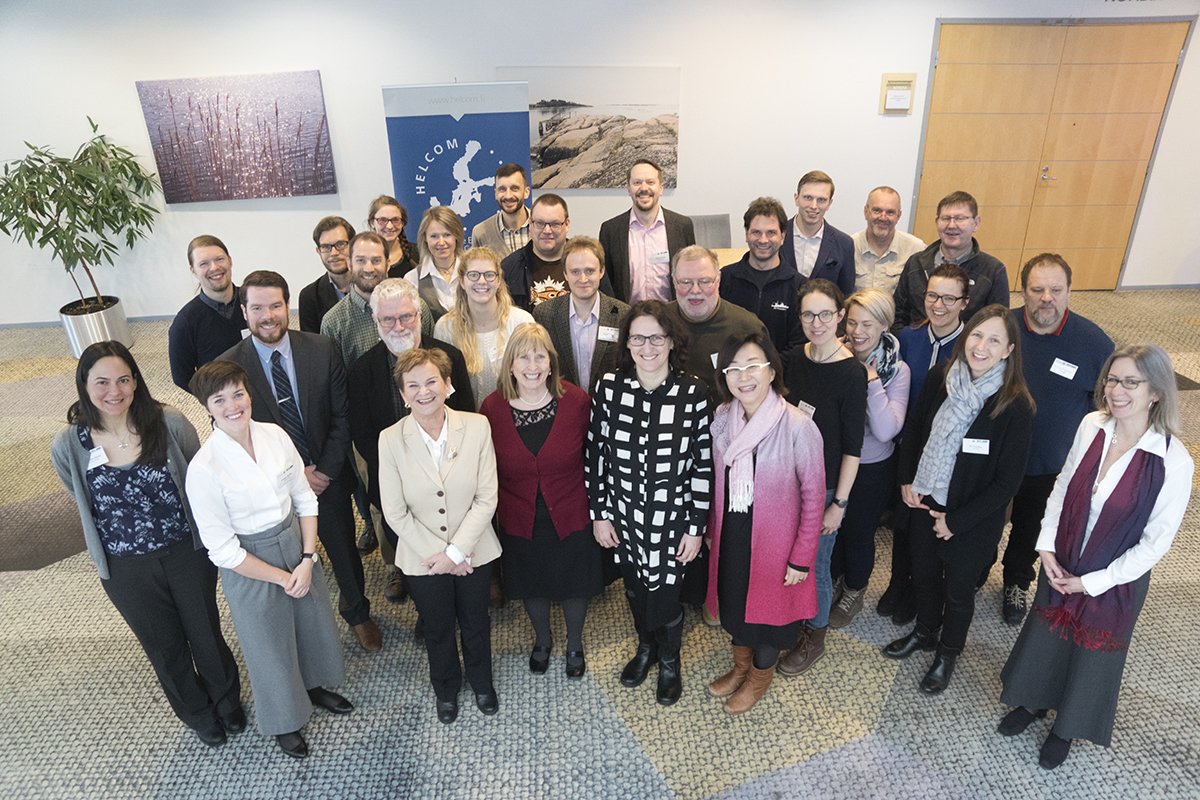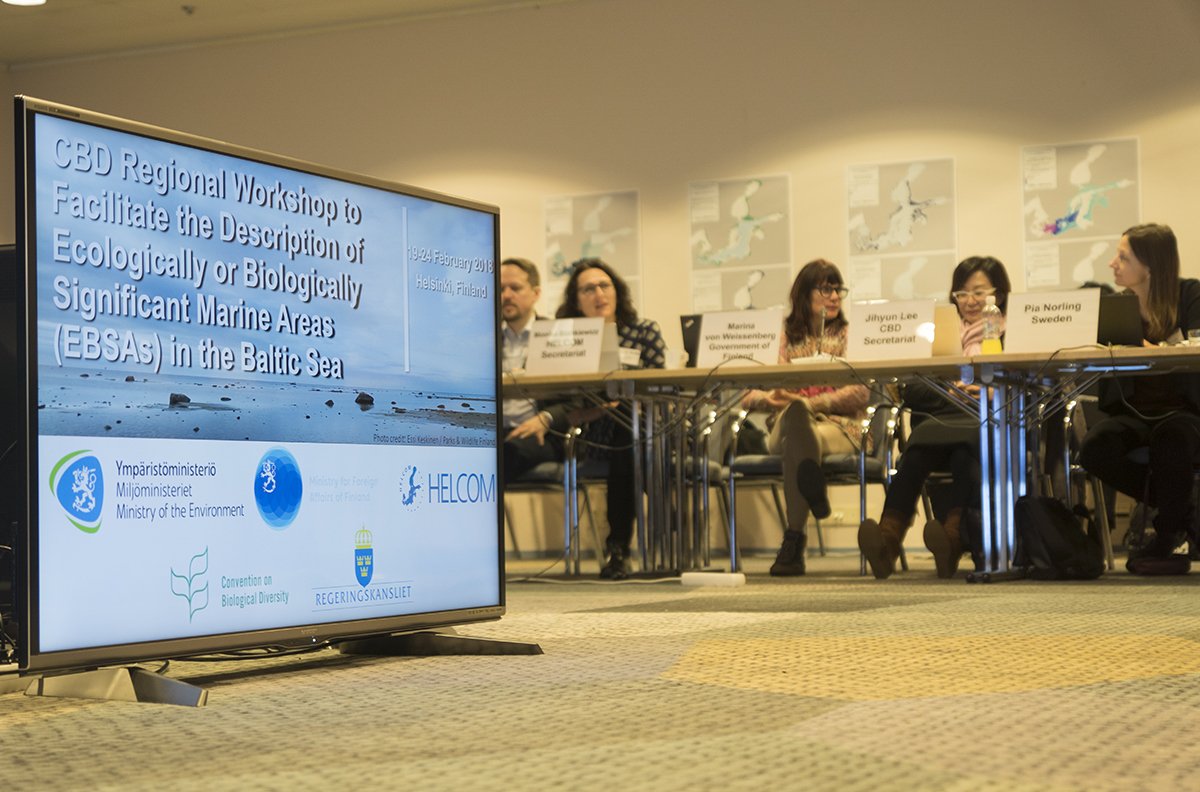The successful completion of the 14th CBD regional EBSA workshop targeting the Baltic Sea (19-24th February 2018) represents a major milestone in the EBSA process, having now covered all of its intended world oceans and seas (excluding the Southern Ocean). During the workshop, representatives from most Baltic States – brought together by the Baltic Marine Environment Protection Commission (HELCOM) – and experts from WWF, BirdLife International, UNEP-WCMC, Coalition Clean Baltic (CCB), the Indigenous Peoples’ and Community Conserved Areas and Territories Consortium (ICCA) and GOBI, worked closely together, with unfaltering technical support from Duke University’s Marine Geospatial Laboratory and the CBD Secretariat.
Several potential areas of ecological significance were eventually whittled down to nine candidate EBSAs, which were described with available data and expertise. The completed EBSA description templates will now be submitted for peer review by the CBD’s Subsidiary Body on Scientific, Technical and Technological Advice, and eventually will be sent for consideration by the Parties to the CBD at the next COP in November 2018. If accepted at the COP, the nine Baltic EBSAs will cover 23% of the Baltic Sea, and recognise the Baltic as a globally unique ecosystem of brackish-water habitats and species.



